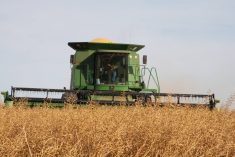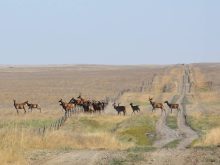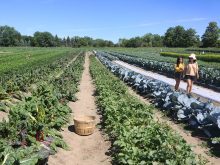Food prices reached a record high last week, as calculated by the United Nations Food and Agriculture Organization. FAO calculations of a global monthly price for a food basket of cereals, oilseeds, dairy, meat and sugar are the highest ever.
Prices have surpassed records set in 2008 that sparked riots and raised major concerns about feeding the world’s poor.
Did world powers and the world’s citizenry learn from the experiences of 2008? Are we wiser now about the importance of food production and the potential folly of protectionism?
Read Also

New program aims to support plant-based exports to Asia
Understanding the preferences of consumers in Taiwan and how they differ from Indonesia or Malaysia isn’t easy for a small company in Saskatchewan.
We earnestly hope so.
The situation behind rising food and commodity prices is slightly different this time around, so any lesson will not be learned in exact parallel.
Fuel and oil prices aren’t at the obscene levels of 2007-08, biofuel production has slowed and futures markets are not yet soaring.
But bad weather in major crop growing regions including floods in Australia, drought in Argentina and Russia, frost in Europe and excessive moisture on the Canadian Prairies is raising concern about production. Wordwide, stocks are lower than is comfortable and many predict food prices will continue their upward trend.
Rising prices increase the temptation for some countries to employ protectionist policies. It is particularly tempting for fast-growing developing countries like China, India, Indonesia and Malaysia.
It is the wrong response, potentially for the wrong reasons.
Far better to encourage prices that allow producers to make a profit, thereby encouraging higher production and providing more food for world consumption.
A senior underwriter in the London political risk insurance market phrased it well in a story reported by Reuters: “The potential is there for food riots and also for governments to take action such as embargos on food exports or nationalization of assets involved in food production or storage in order to protect their people – not always necessarily for the sake of altruism but often to preserve their position as governments in office,” he said.
Rising food commodity prices send the signal to increase production.
If farmers can profit by producing food – and such is not always the case – they are encouraged to produce more.
And they will have to produce more, if the world is to feed its burgeoning population.
Higher production encourages spinoffs in businesses and organizations that form the infrastructure to supply and service the agricultural industry. It increases interest in farmland purchases and it increases interest and funding for research.
Higher prices encourage people to enter the agricultural business, protecting the future of the industry and of food production.
“Clearly what is needed is to increase production through appropriate investment in agriculture, to increase the information on stocks around the world, strengthen the regulation of the futures markets and to have safety net mechanisms to protect the poorest consumers,” said Maximo Torero of the International Food Policy Research Institute.
Fortunately, it does appear that the world learned a lesson from the riots and fears of 2008. The group of 20 leading countries have started talks to improve global co-operation to resolve food security problems. A summit on the topic is being planned by France, according to a Reuters report, with food security and price volatility on the agenda.
These are hopeful signs that the world has moved beyond knee-jerk reactions that vilify rising food prices. Rather than policies to control those prices, governments should concentrate on policies that will ensure the poor can access adequate food. That would be a sign of lessons learned.
Bruce Dyck, Terry Fries, Barb Glen and D’Arce McMillan collaborate in the writing of Western Producer editorials.
















